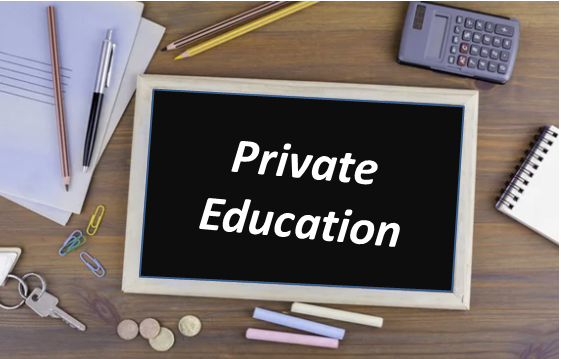Education is one of the most important pillars of any society And its structure greatly influences the development of individuals and communities. Private education has emerged as a prominent alternative to the traditional public school system in many parts of the world. But what exactly is private education, how does it compare to public schools. This article highlights the key aspects of private education, its benefits, challenges and its role in today’s education landscape.
What is Private Education?
Private education refers to schools that are privately funded and managed, as opposed to public schools that are funded by government taxes. These schools often charge tuition fees that can vary widely depending on the institution’s reputation, facilities, and location. Private schools can be secular or religious, offering curricula and specialized teaching methods on a variety of issues.
Private schools have a long history, especially in regions where access to quality education was limited. Where specific types of education (such as religious or language specific instruction) were desired. Over time they became an attractive choice for many parents seeking an alternative to the public education system.
Types of Private Schools
There are many types of private schools, each catering to different needs and educational philosophies. Some of the main types include the following:

- Independent private schools: These operate autonomously without the direct control of the school’s governing body or religious institution. They rely entirely on tuition fees, donations, and endowments to fund their operations. Examples include elite preschools and special institutions.
- Parochial schools: Parochial schools are private institutions affiliated with religious organizations. Often offering standard academic subjects as well as faith-based education. Especially common in Christian, Jewish, and Muslim communities.
- Charter Schools: Although technically part of the public education system. Charter schools often operate with more autonomy than traditional public schools. They may be run by private entities and financed by a combination of public and private sources.
- Montessori, Waldorf, Reggio Emilia schools: These private schools follow alternative educational philosophies, emphasizing individualized learning, creative expression, and child-centered teaching methods.
Private education in a global context
The prevalence and role of private education varies greatly from country to country. Some developed countries see private education as a way to greatly increase access to high-quality education or special programs. Others in which private education may be the only viable option for families seeking an education that aligns with their values, especially in regions where public education systems are underfunded or of low quality.
In countries with significant wealth inequality, private schools are often seen as a way for the wealthy to maintain exclusive networks and access to high-quality education for their children. Creating disparities in educational opportunity and reinforcing social and economic divisions with private education.
Conclusion
Private education plays an important role in the educational landscape, offering families an alternative to public schools that can largely meet special needs and preferences. Although private schools often provide high-quality education, personal attention, and additional resources, they also present challenges such as high costs, limited diversity, and lack of regulation. Ultimately, the decision to enroll a child in private education depends on the student’s individual needs, the family’s financial situation, and the options available in the local community.
As the education system continues to evolve, it is clear that private education will remain a key component of the broader education ecosystem, shaping the experiences and futures of countless students around the world.






Leave a Reply